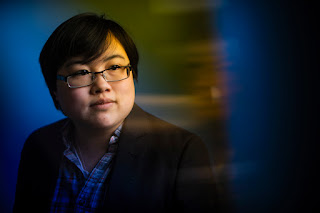 |
| 8th Annual International Disability Rights Affirmation Conference November 1-2, 2019 The Sojourner Auditorium, Virtual Ability, Second Life® “We Health Each Other, We Help Ourselves.” |
Virtual Ability’s eighth annual International Disability Rights Affirmation Conference (IDRAC) will be held on Friday and Saturday, November 1 and 2. The conference theme is “We help each other, we help ourselves.” The conference is free and open to the public.
We bring together academic researchers and practitioners to share their wisdom with our audience in a variety of formats. This year our presenters are from Canada, China, Italy, Malta, Mexico, the Netherlands, the UK and the US.
The conference schedule is available on our website. Check out the intriguing topics and highly qualified presenters.
The conference is held in the Sojourner Auditorium on Virtual Ability island.
The SLURL is http://maps.secondlife.com/secondlife/Virtual%20Ability/54/170/23.
If you can not attend in the virtual world, the live stream URL for Virtual Ability, Inc., is https://www.youtube.com/channel/UCecFbqrNpnAbfaEohz8HIhQ/live.
As with all Virtual Ability conferences, IDRAC is presented in text and voice to ensure maximum accessibility.
Text transcripts from past conferences are archived on our website.
We hope you can attend our conference on November 1 and 2!
We bring together academic researchers and practitioners to share their wisdom with our audience in a variety of formats. This year our presenters are from Canada, China, Italy, Malta, Mexico, the Netherlands, the UK and the US.
The conference schedule is available on our website. Check out the intriguing topics and highly qualified presenters.
The conference is held in the Sojourner Auditorium on Virtual Ability island.
The SLURL is http://maps.secondlife.com/secondlife/Virtual%20Ability/54/170/23.
If you can not attend in the virtual world, the live stream URL for Virtual Ability, Inc., is https://www.youtube.com/channel/UCecFbqrNpnAbfaEohz8HIhQ/live.
As with all Virtual Ability conferences, IDRAC is presented in text and voice to ensure maximum accessibility.
Text transcripts from past conferences are archived on our website.
We hope you can attend our conference on November 1 and 2!
















